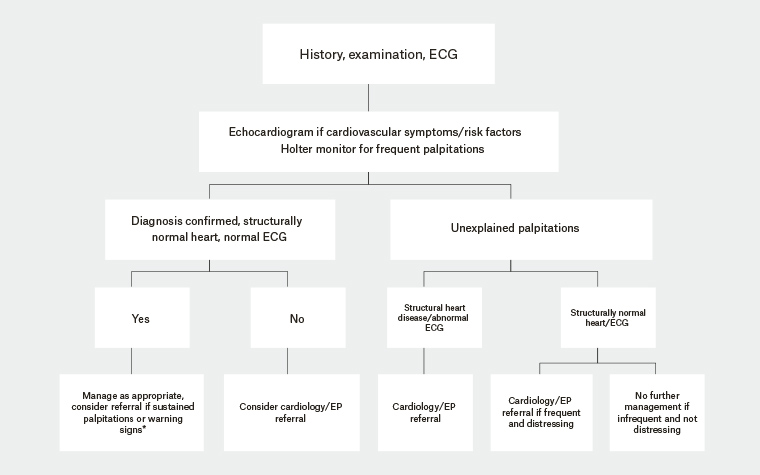Occasional Ectopy
New Patient Appointment or214-645-8300

Holter monitor results state say rare supraventricular ectopy and isolated ventricular ectopy. Also states 1 or 2 episodes of tachycardia.No sinus pauses (whatever that means) Average heart rate is 78 beats per min with normal heart rate variability. An atrial ectopic beat is a problem in the electrical system of the heart. It is an extra heartbeat caused by a signal to the upper chambers of the heart (the atria) from an abnormal electrical focus. It is also called an atrial premature beat or a premature atrial contraction.
For most people, an occasional ectopic heartbeat only needs to be medically evaluated if it is causing you anxiety. However, if you have had a heart attack, have heart disease or other heart issues, or are at elevated risk, you should have any skipped or premature heartbeats evaluated by your doctor. 'Ectopic' means something that is in an odd place or position. In the case of an ectopic beat, that oddly placed something is your heartbeat. You may hear people call this condition an early. An AEB is usually a harmless disturbance in the normal rhythm of the heart. It can occur only occasionally, in a regular pattern, or several may occur in sequence and then disappear. Most often, the person is unaware of the event.
Occasional Ectopy
New Patient Appointment or214-645-8300
Occasional Ectopic Beat
Hearing a developing baby’s heartbeat is one of the milestones of pregnancy. And hearing it at every prenatal visit is comforting. The doctor uses a Doppler ultrasound to gauge the fetal heart rate (the number of times the baby’s heart beats per minute) and makes sure it falls within the correct range. The normal rate is 110 to 160 beats per minute, although it can be higher in the first trimester or during periods of fetal activity.
But the doctor also listens for proper heart rhythm, or a normal, steady balance of beats and rests between them. Detection of some dropped or extra beats (arrhythmia) is fairly common, occurring in 1 to 2 percent of pregnancies. Instead of hearing a “thump-THUMP-thump-THUMP” rhythm, the doctor might hear “thump … THUMP-THUMP … thump.”
Occasional Isolated Supraventricular Ectopy

There are three types of fetal arrhythmias:
● Bradyarrhythmia: The heart rate is too slow.

● Tachyarrhythmia: The heart rate is too fast.
● Ectopic rhythm: The heart produces early beats, which sound like extra or dropped beats.
If the Ob/Gyn hears an abnormal rhythm, he or she will refer you to a maternal-fetal medicine doctor (MFM) or a pediatric cardiologist to evaluate the baby’s heart structure. Understandably, many expecting parents feel anxious about this test. But frequently, we find a logical explanation for the irregular rhythm that can be corrected with simple lifestyle changes.
LISTEN:
Hear the difference between a regular heart rhythm and an irregular heart rhythm.
What to expect at that visit
The first step is to examine the baby’s heart structure to determine whether it has developed as expected. Congenital heart defects can cause heart rhythm disturbances. In the rare event of a structural heart complication, our congenital heart team will create a pre- and post-delivery treatment plan that might include medication, surgery, or both.
A normal heart structure with occasional ectopic beats is usually nothing to worry about. A careful review of maternal activities may uncover a possible trigger for the fetal arrhythmia.
Detection of some dropped or extra beats (arrhythmia) occurs in 1 to 2 percent of pregnancies. Instead of hearing a “thump-THUMP-thump-THUMP” rhythm, the doctor might hear “thump … THUMP-THUMP … thump.”



